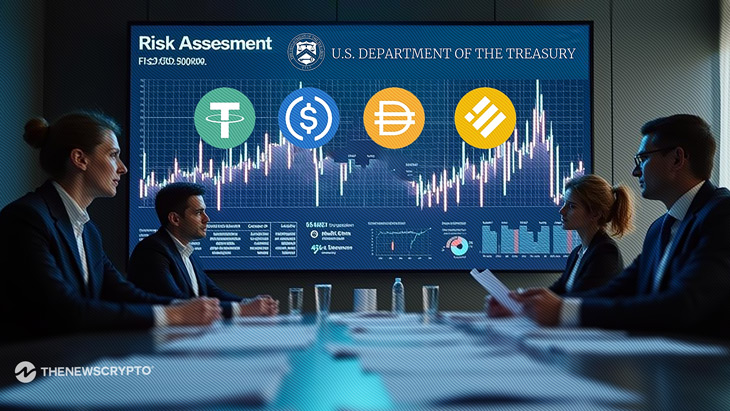- FSOC warns stablecoins, especially Tether, could cause financial problems without better risk management.
- The council calls for clear federal rules to reduce risks and improve transparency.
- FSOC urges Congress to act quickly to prevent issues from unregulated stablecoins.
The U.S. Financial Services Oversight Council has issued a stark warning in its 2024 annual report. Which is emphasizing the potential risks that stablecoins pose to the financial system’s stability.
FSOC Warns of Stablecoin Risks
The FSOC’s report, published on December 6. Which highlighted that stablecoins remain “acutely vulnerable to runs” without proper risk management standards.
One of the main concerns raised by the council is the market concentration of stablecoins. Tether (USDT), the largest stablecoin, accounts for around 66.3% of the total stablecoin market capitalization, valued at $205.48 billion. With such a significant market share. The failure of Tether could lead to substantial disruptions in both the cryptocurrency and traditional financial markets.
Although the council did not directly name any of the companies. It pointed to the dominance of firms like Tether. And cautioned that their continued growth could have “knock-on effects” for the broader financial system. This is particularly concerning the Tether’s lack of third-party audits. Which has raised fears of potential liquidity crises similar to the collapse of FTX.

FSOC Calls for Federal Stablecoin Regulation
This also criticized the need for a comprehensive federal regulatory framework for stablecoins, with many issuers operating outside or in noncompliance with federal regulations. While some states have put in place supervisory measures, these are seen as insufficient to ensure effective market discipline and investor protection.
The council warned that the lack of transparency regarding reserve management. And the insufficient verifiability of holdings increase the risk of fraud and manipulation within the sector.
Stablecoins have faced significant scrutiny since the TerraUSD (UST) collapse in 2022, which lost its peg to the U.S. dollar, causing a massive market crash. Despite these risks, stablecoins remain vital in the crypto ecosystem, particularly in trading and liquidity.
The FSOC has once again urged Congress to act swiftly to establish a comprehensive federal framework for regulating stablecoins, addressing issues like run risk, market integrity, and consumer protections.
Without such legislation, the council warned that it may have to take further steps to mitigate the potential risks of stablecoins to the financial system.
As regulatory bodies in other countries. Such as Australia and Brazil, also begin to tighten oversight of stablecoins, the global regulatory landscape for digital assets is becoming increasingly important in managing risks and ensuring market stability.








